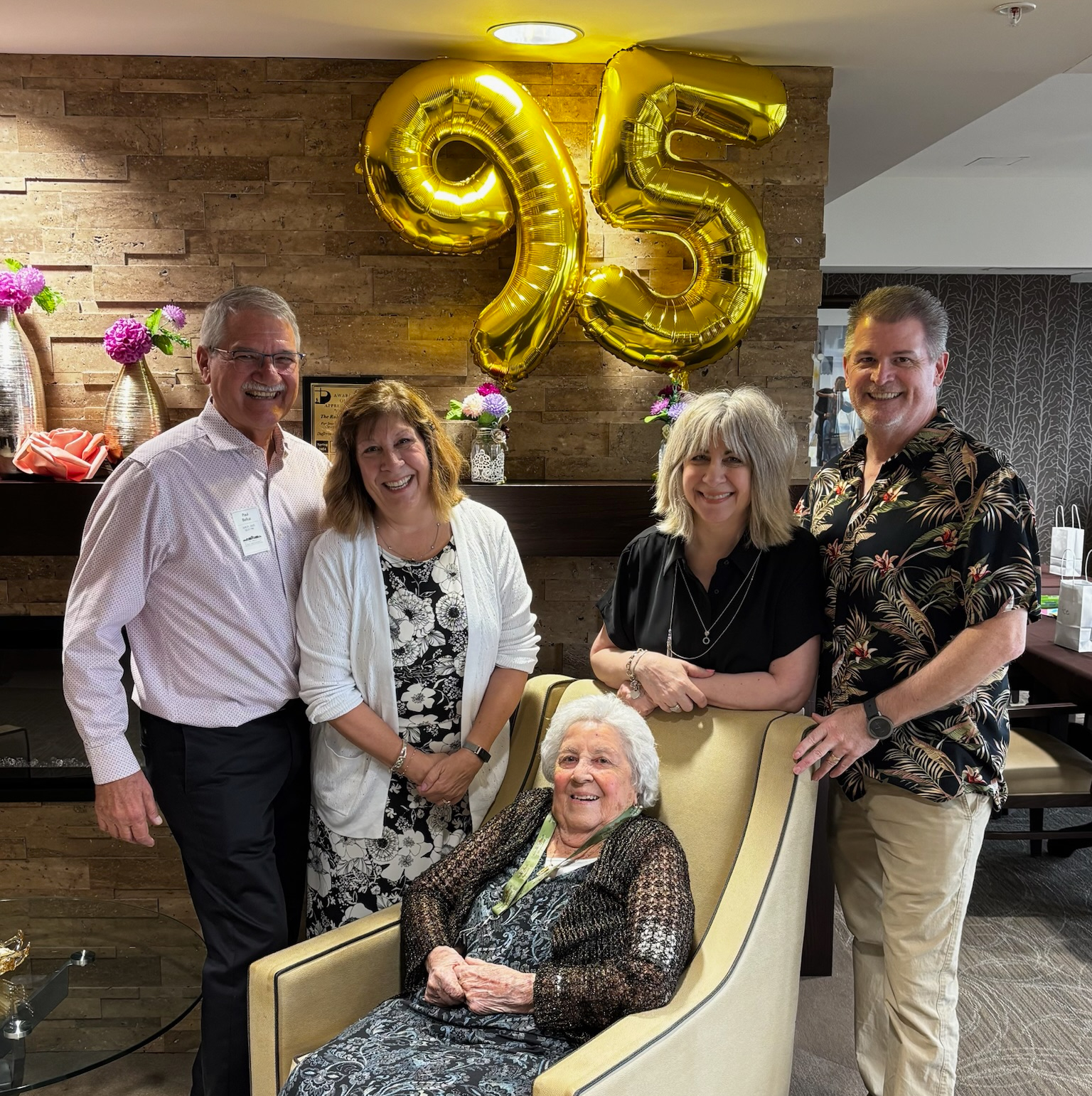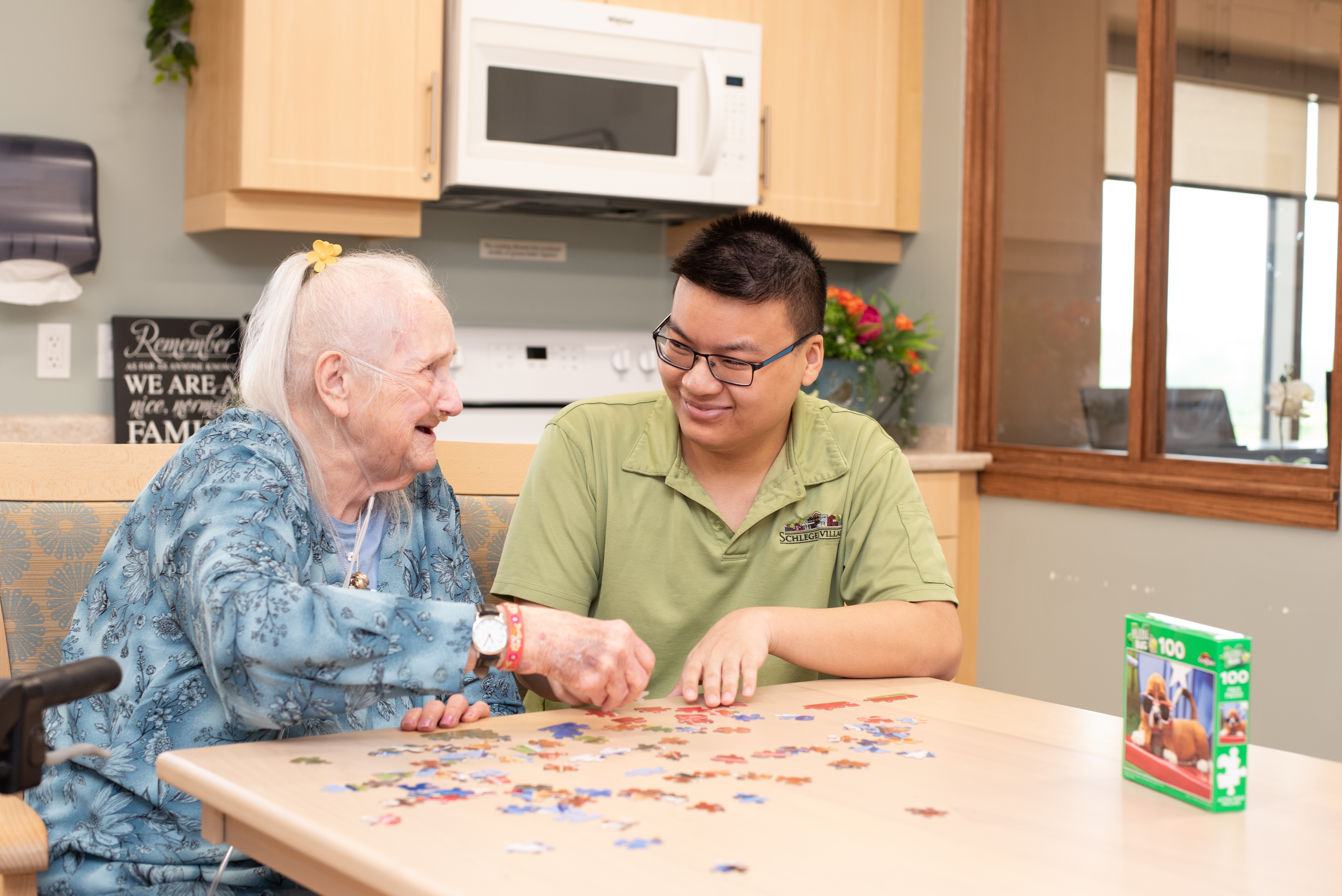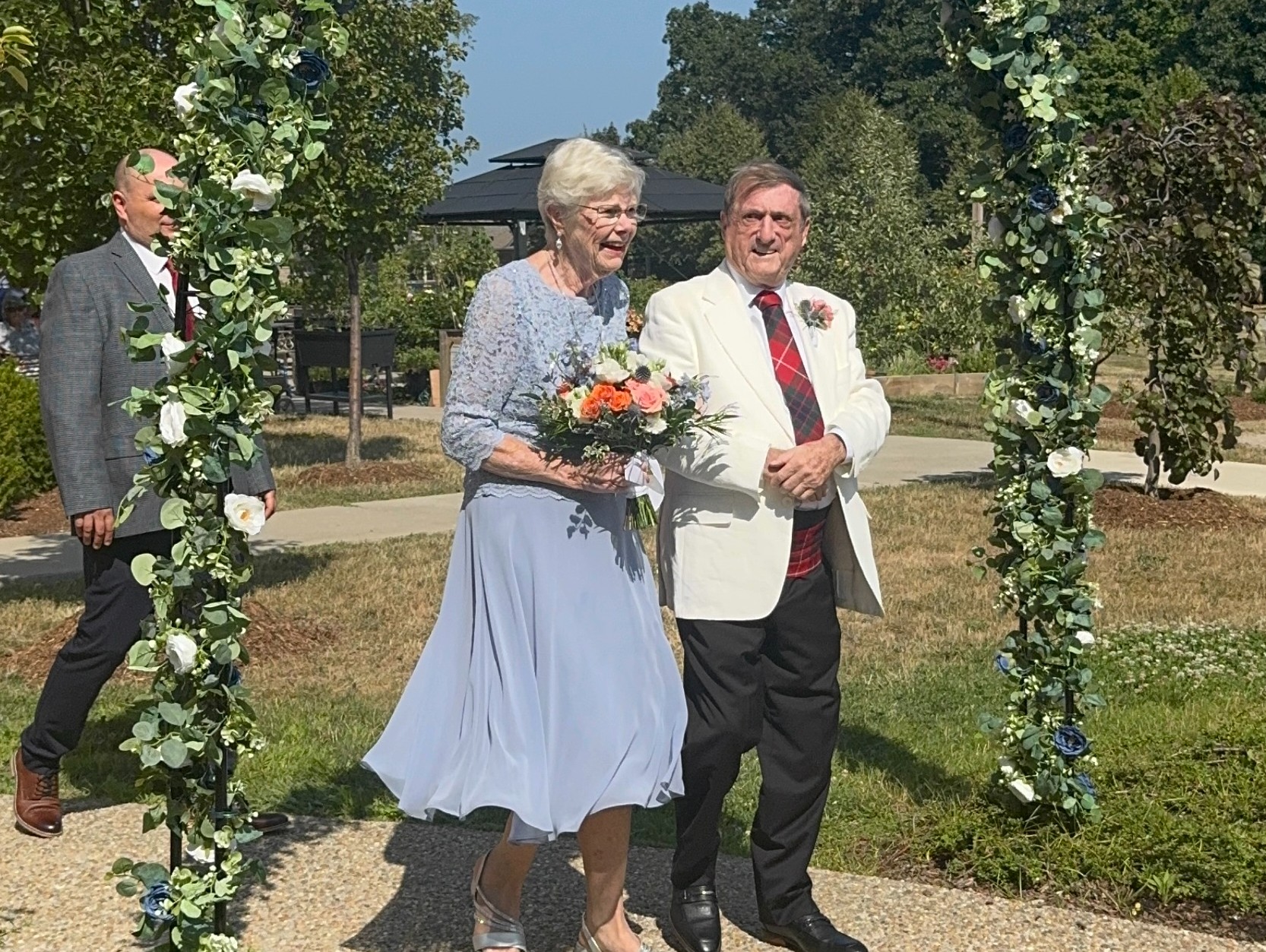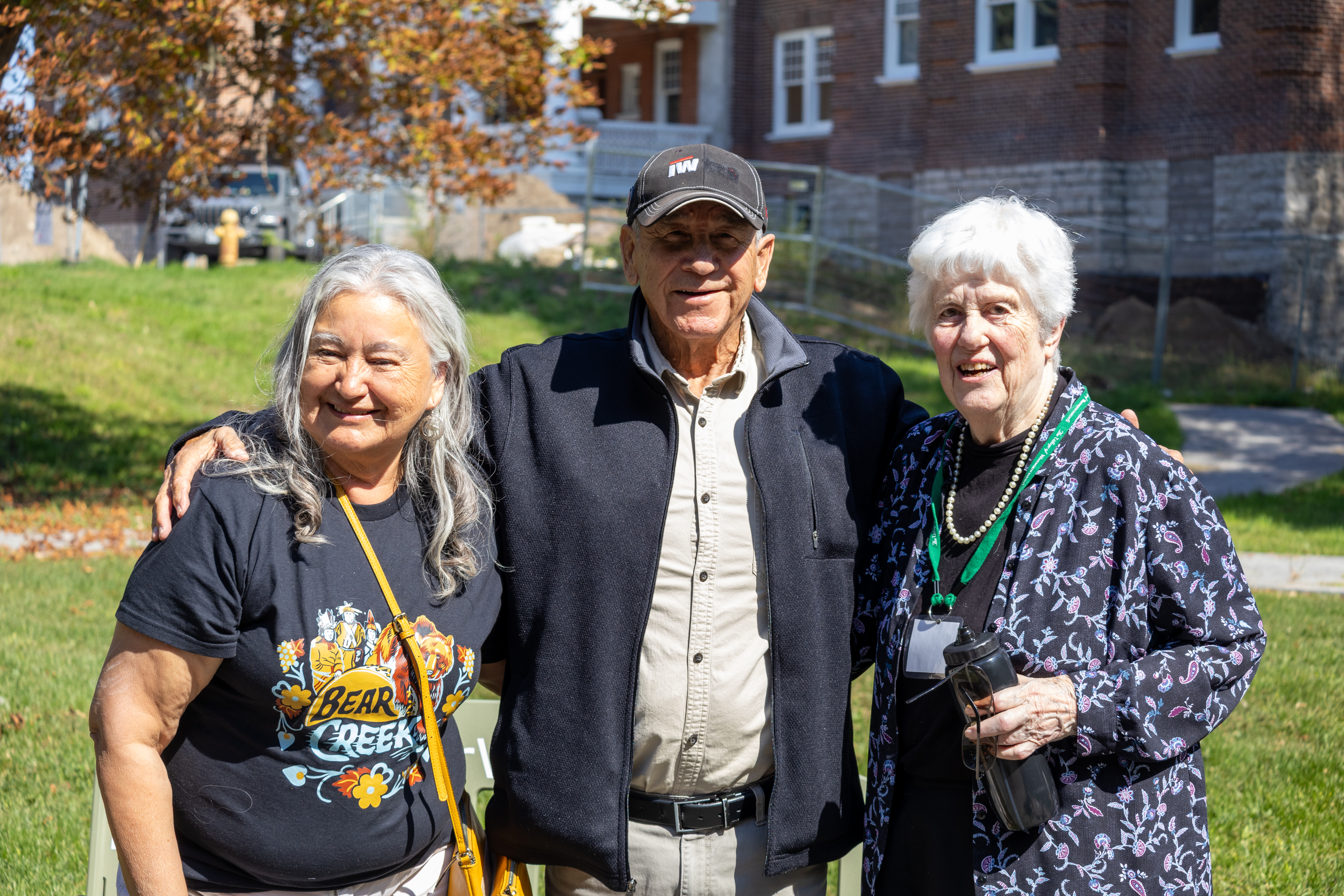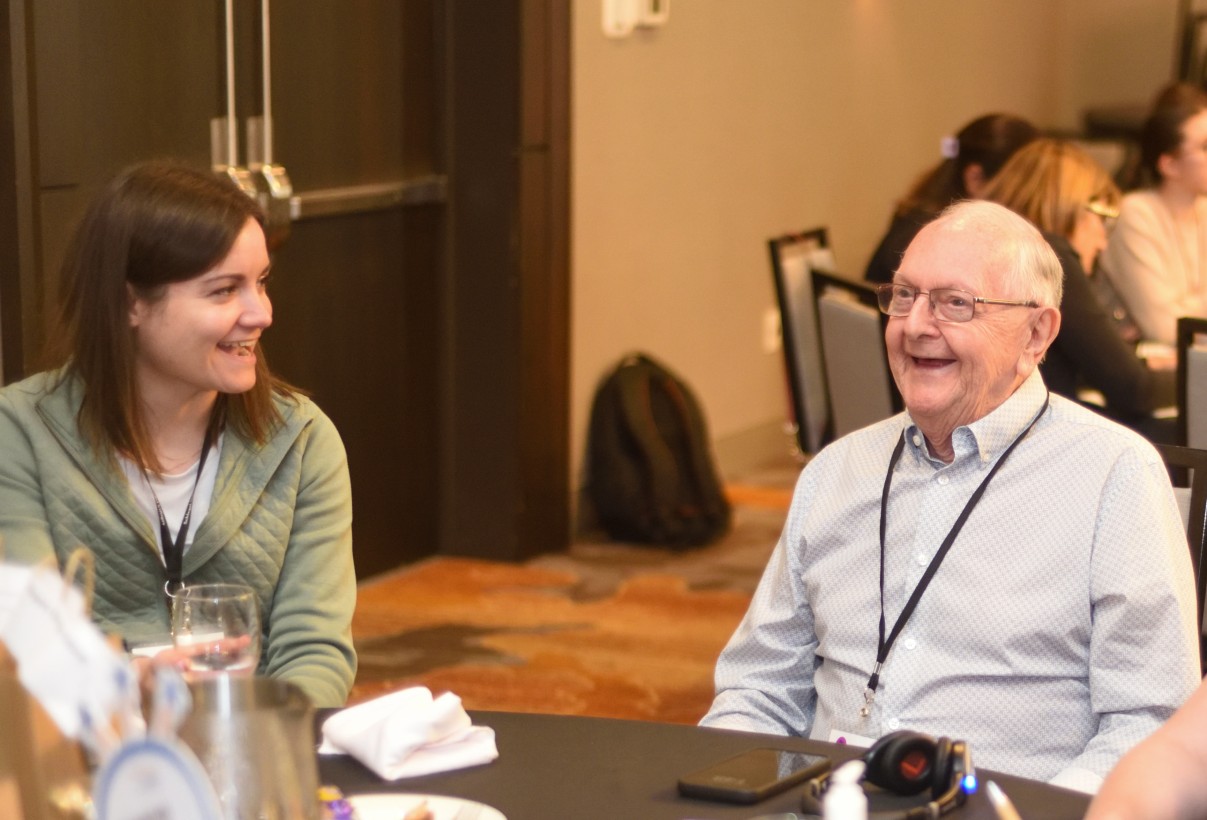A powerful experience as people living with dementia share their experiences
By Kristian Partington
When the To Whom I May Concern sharing group from the Village of Humber Heights in Etobicoke took centre stage at the Schlegel Villages Operational Planning retreat, 300 people held their breath. Many in the audience had heard whispers about this project, which encourages people living with dementia to open up about the reality of their day-to-day lives through facilitated discussions, but they had yet to see the outcome. These discussions, which take place weekly over the course of a few months, are incorporated into a script – an open letter to be read aloud offering insights from within the hearts and minds of those living with dementia.
“Powerful” doesn’t describe the experience of hearing this group open their hearts. Lorraine, a former ER and palliative care nurse, took the stage alongside James, a Scottish machinist and former professional soccer player, Evelyn, a dancer, and Jean, a woman who in her younger days played competitive basketball. Melynda Anderton, the To Whom I May Concern facilitator, supported them on stage along with two Humber Heights team members, Asha and Suzanne, who were gifted with the opportunity to be part of the process.
The words spoken were honest and, at times, heartbreaking. With each candid feeling exposed, the group opened the minds in the audience, forcing a deep sense of introspection. This unique glimpse into the individual truths of a person struggling with a dementia diagnosis will have a lasting impact.
The script does read like a letter, addressed not to Whom it May Concern, but to Whom I May Concern.
“It’s not a mistake,” Lorraine said, reading from the opening of the script. “This letter is not about an ‘it’, a nameless, faceless object. This letter is about an ‘I’ and that is me. I’m writing to let you know what it’s like to be me these days.
“I want to share with you what it’s like to live with this terrible disease. Yes, it is a terrible disease, but that doesn’t mean that my life is terrible. I want so much for you to understand that because I think it would make you more comfortable when we’re together.”
In turn throughout the presentation each person spoke of the fear and shame they felt when the diagnosis first came. They spoke of loneliness and of people talking all around them, not giving them the time they need to process conversations and formulate their response. They spoke of trying to hide the fact that they are changing, and they bared the underlying spectre of depression that compounds upon the difficulties they already face.
At one point James talked about the isolation he feels, even when other people surround him.
“I feel as though I am ignored at times because I am just not quick enough to be included in the group or even the conversations happening around me,” he said. “This can sometimes make me feel invisible. I wish things could just be a bit slower and I could be included in conversations happening around me.”
With each confession, the audience members questioned their own reactions to the people they serve who are living with dementia; in a long-term care or retirement setting, there are many.
This is a disease that touches many people, and one of the key teaching points the sharing group offered was their assurance that no matter what it may seem like from hour-to-hour or day-to-day, the person living with dementia is still there. They still feel love and sorrow and their memories or lack thereof do not define them.
“We are ordinary people trying to make the most of a difficult situation,” Lorraine explained near the end of the presentation. “We don’t want to disappear. We also try to forget. I know that may sound funny – forgetting is at the heart of our problem – but we do try to forget about our illness. We don’t want it to define us.
“We are more than our memory.”
With the final words, the audience members offered a roaring standing ovation, many people clapping as they wiped tears from their eyes. The words they heard that day will stay with them forever and for those living with dementia, another chip at the stigma surrounding the disease has been knocked away.
Note: This program, which is also being piloted at the Villages of Sandalwood Park and Arbour Trails, has been adapted from the community-based original. This is the first time it has been done within a long-term care or retirement setting. Please click here for more information.
- Previous
- View All News
- Next
